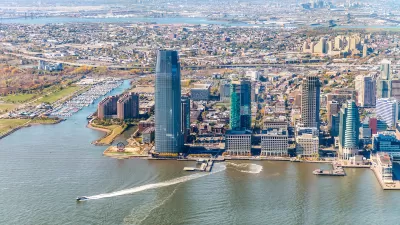The city’s focus on assistance for households at risk of eviction and supportive housing helped keep more residents housed.

While the homeless population in most of the country grew over the last year, Chattanooga, Tennessee managed to reduce homelessness in the region by 49 percent compared to 2022.
As Kalena Thomhave explains in Smart Cities Dive, “Advocates in Chattanooga attribute the region’s success to several strategies, including a focus on providing housing, eviction prevention, and collaboration among service providers to target resources to vulnerable populations.”
The city currently has 200 units of supportive housing primarily aimed at people experiencing chronic homelessness. Its Eviction Prevention Initiative, meanwhile, offers assistance to tenants at risk of eviction by paying back rent, moving costs, and legal costs. “The goal is to help renters stay in their homes rather than force them into alternative accommodations like moving in with a family member, sleeping at a homeless shelter, or no housing at all.”
Like other experts, Steve Berg, chief policy officer at the National Alliance to End Homelessness, says homelessness is ultimately a housing problem. To prevent households from falling into homelessness or spending the majority of their income on housing, Chattanooga and other cities must encourage housing development that keeps up with demand.
FULL STORY: Chattanooga reduced its homeless population by almost 50% last year. Here’s how.

Planetizen Federal Action Tracker
A weekly monitor of how Trump’s orders and actions are impacting planners and planning in America.

Chicago’s Ghost Rails
Just beneath the surface of the modern city lie the remnants of its expansive early 20th-century streetcar system.

San Antonio and Austin are Fusing Into one Massive Megaregion
The region spanning the two central Texas cities is growing fast, posing challenges for local infrastructure and water supplies.

Since Zion's Shuttles Went Electric “The Smog is Gone”
Visitors to Zion National Park can enjoy the canyon via the nation’s first fully electric park shuttle system.

Trump Distributing DOT Safety Funds at 1/10 Rate of Biden
Funds for Safe Streets and other transportation safety and equity programs are being held up by administrative reviews and conflicts with the Trump administration’s priorities.

German Cities Subsidize Taxis for Women Amid Wave of Violence
Free or low-cost taxi rides can help women navigate cities more safely, but critics say the programs don't address the root causes of violence against women.
Urban Design for Planners 1: Software Tools
This six-course series explores essential urban design concepts using open source software and equips planners with the tools they need to participate fully in the urban design process.
Planning for Universal Design
Learn the tools for implementing Universal Design in planning regulations.
planning NEXT
Appalachian Highlands Housing Partners
Mpact (founded as Rail~Volution)
City of Camden Redevelopment Agency
City of Astoria
City of Portland
City of Laramie





























